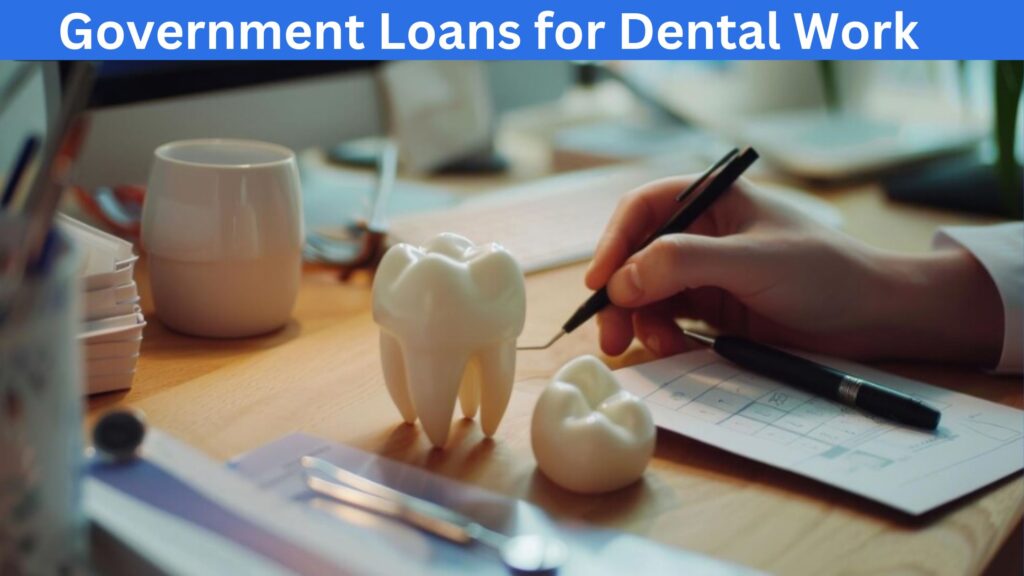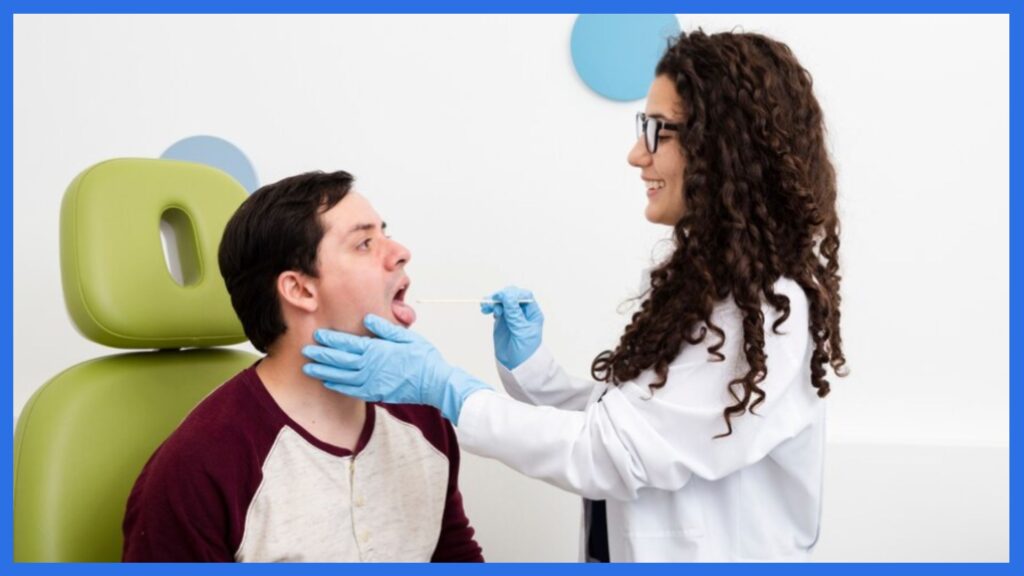
In recent years, dental care costs have soared, placing many individuals’ essential procedures out of reach. As a result, people across the country are exploring financial options, such as government loans, to access the care they need without plunging into debt. In this guide, we’ll explore how government loans can make dental work more affordable, the types of loans available, eligibility requirements, and how to navigate the application process.
Why Consider Government Loans for Dental Work?
With dental issues linked to broader health conditions, proper dental care is not a luxury; it’s a necessity. Government loans provide a financial pathway for those who might otherwise avoid crucial dental work due to high costs. Here are some compelling reasons to consider government loans for dental care:
- Accessibility: Government loans often offer more accessible terms than private loans, making them ideal for individuals who may not qualify for traditional financing.
- Lower Interest Rates: Many government-backed loans come with lower interest rates, helping borrowers manage repayment without excessive financial strain.
- Increased Flexibility: These loans offer extended repayment terms, making it easier to spread the cost of dental work over several years.
- Encouraging Preventative Care: Access to government loans can enable preventative care, often reducing long-term dental costs.
Types of Dental Care That Can Be Covered

Whether you need basic dental services or specialized procedures, government loans can often help cover various types of dental work:
- Preventative Care: Cleanings, check-ups, and basic fillings.
- Restorative Procedures: Root canals, bridges, and crowns.
- Orthodontic Work: Braces and retainers.
- Oral Surgery: Wisdom teeth removal, gum surgery, or jaw realignment.
- Cosmetic Dentistry: Teeth whitening, veneers, and bonding (depending on the loan program).
Types of Government Loan Programs Available for Dental Work

Several government-backed programs are available to help cover the cost of dental care. Here’s an overview of some of the most prominent options:
1. Medicaid Dental Loans and Grants
Medicaid, a joint federal and state program, provides free or low-cost dental coverage to eligible individuals and families. While Medicaid doesn’t typically cover all dental expenses, many states offer grants and loans that can supplement coverage for necessary procedures.
- Eligibility: Medicaid eligibility varies by state and is primarily based on income level, family size, and other demographic factors.
- Application Process: Each state has its Medicaid application process. Contact your local Medicaid office to learn about specific dental grants or loan programs in your state.
2. CHIP (Children’s Health Insurance Program)
For families with children under 19, CHIP provides low-cost or free health coverage, including dental work, in many states. This coverage can reduce the burden on parents who may not otherwise be able to afford essential dental services for their children.
- Eligibility: CHIP is available to children in low-to-moderate-income families.
- Application Process: CHIP applications are typically completed through state health departments. Parents can inquire about dental grants and specific loans available under this program.
3. Department of Veterans Affairs (VA) Loans for Dental Care
The VA offers dental care services for eligible veterans, often including financial assistance for major dental work. Veterans may also qualify for personal loans backed by the VA to cover additional dental procedures not provided directly.
- Eligibility: Veterans enrolled in the VA Health Care program may qualify, though coverage can vary based on a veteran’s classification.
- Application Process: Contact the VA directly to learn about available dental loans and programs for veterans.
4. USDA Rural Development Loans
For those living in rural areas, USDA loans are available to help finance healthcare needs, including dental work. This funding is available for low-income residents in rural communities.
- Eligibility: Income limitations and rural residency are primary eligibility requirements.
- Application Process: Applicants should reach out to their local USDA Rural Development office to discuss available loan programs for dental care.
Additional Financing Options Through Government Programs
While not direct loans, these programs can supplement government loans and help reduce the out-of-pocket costs associated with dental care.
Flexible Spending Accounts (FSAs) and Health Savings Accounts (HSAs)
FSAs and HSAs allow individuals to set aside pre-tax dollars for medical expenses, including dental work. While not government loans per se, these accounts are tax-advantaged programs set up in partnership with government agencies to promote health savings.
- Eligibility: Employed individuals with employer-sponsored healthcare plans can open an FSA, while HSAs are available for individuals with high-deductible health plans.
- Benefit: Using pre-tax income can significantly reduce the cost of dental procedures.
How to Apply for Government Loans for Dental Work
Applying for government assistance can be a daunting task, but here’s a simplified step-by-step guide:
- Research Eligibility Requirements: Ensure that you meet all criteria for the program you’re interested in. Contact local health departments or government offices for clarification.
- Gather Required Documentation: Most applications require proof of income, residency, and other personal information.
- Submit Your Application: Follow the application instructions precisely and submit it to the appropriate office or agency.
- Follow Up on Your Application: Processing times vary; checking back can help you stay informed about your application status.
- Prepare for Repayment: Once approved, review loan terms carefully and be prepared for monthly repayments once dental care is complete.
Tips to Maximize Government Loans for Dental Work
Explore Additional Grants and Subsidies: Many non-profit organizations offer supplementary dental grants.
Work with Local Health Clinics: Community health clinics often provide affordable care and may even assist in finding government programs.
Leverage Your Dental Insurance: If you have insurance, combine it with government loans to minimize the amount you need to borrow.
Conclusion
Government loans for dental work offer crucial financial assistance, allowing individuals to afford necessary treatments without straining their finances. Exploring available options, reviewing eligibility requirements, and utilizing additional resources can help you make well-informed decisions about funding your dental care.
Frequently Asked Questions
No, there are several financing options, including private loans, in-house dental office payment plans, and dental credit cards. However, government loans are often preferred due to lower interest rates and better repayment terms.
It depends on the specific program and the nature of the cosmetic procedure. Most government programs prioritize medically necessary treatments, but some loans or grants may cover cosmetic work partially if it’s tied to medical necessity.
If repayment becomes an issue, contact the loan provider immediately. They may offer deferred payment options or an income-based repayment plan.
Eligibility requirements vary by program but typically include factors like income, residency, family size, and in some cases, specific health or disability statuses. Checking with the specific program or your state’s health department will give you a clear idea of eligibility requirements.
Yes, many people use government loans alongside private insurance. Insurance may cover part of the dental costs, and the government loan can help with the remaining balance, reducing out-of-pocket expenses.
If the procedure’s cost exceeds your loan amount, you may need to cover the additional expenses yourself or explore other financial options, such as payment plans or private loans, to bridge the gap.
Yes, retired individuals or seniors on fixed incomes may qualify for specific programs like Medicaid or certain low-interest loans designed for seniors. Eligibility depends on income and other criteria, so seniors should inquire directly with the program.
While government loans often offer favorable terms, they may involve detailed application processes, income verification, and sometimes, limited coverage for certain procedures. Additionally, if the loan repayment terms are not manageable, it could lead to financial strain, so it’s crucial to review the loan agreement carefully.
Disclaimer:
The information provided on this blog is for general informational purposes only and does not constitute financial advice. While we strive to present accurate and up-to-date content, credit card terms, conditions, and offers are subject to change at the discretion of the card issuers. Readers are encouraged to thoroughly review and verify all terms before applying for any credit card.
